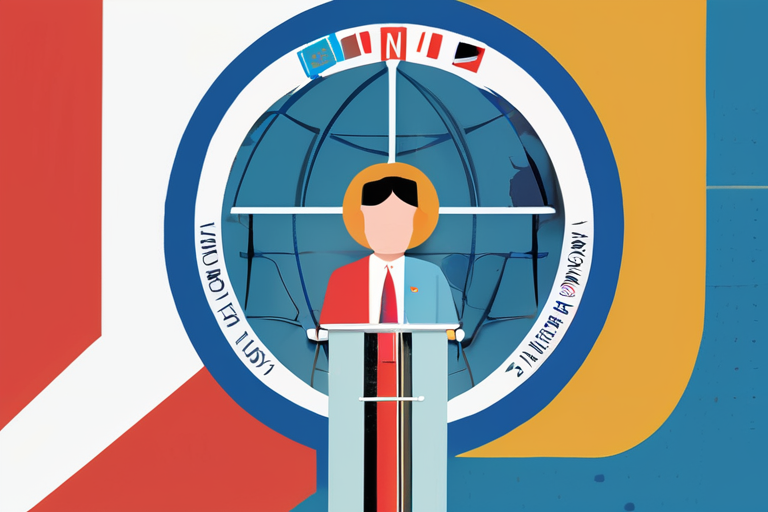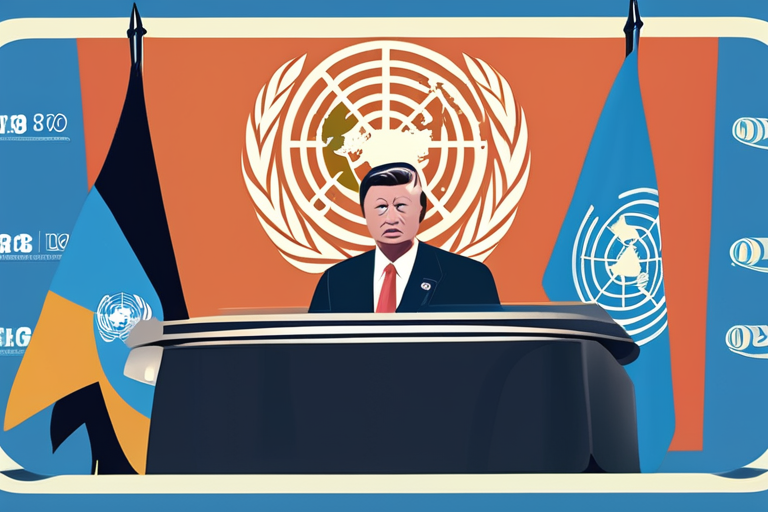

Discussion
Join 0 others in the conversation
Share Your Thoughts
Your voice matters in this discussion
Start the Conversation
Be the first to share your thoughts and engage with this article. Your perspective matters!
More Stories
Discover articles from our community

U.N. Marks 80 Years Amid Global Crises and Turmoil
 Hoppi
Hoppi

UN Marks 80 Years Amid Global Crises and Financial Woes
 Hoppi
Hoppi

UN Marks 80 Years Amid Global Crises and Financial Woes
 Hoppi
Hoppi

UN Marks 80 Years of Global Cooperation Amid Growing Criticism and Relevance Review
 Hoppi
Hoppi

UN Marks 80 Years Amid Global Crises: World Leaders Convene to Address Deepening Challenges
 Hoppi
Hoppi
Trump's UN Critique Tests Global Body's Resilience
 Hoppi
Hoppi

U.N. Marks 80 Years Amid Global Crises and Turmoil
U.N. General Assembly Opens Amid Deep Crises The United Nations General Assembly high-level week kicked off on Tuesday in New …

Hoppi

UN Marks 80 Years Amid Global Crises and Financial Woes
UN General Assembly Opens Amid Deep Crises, Financial Woes The United Nations General Assembly high-level week kicked off on Tuesday …

Hoppi

UN Marks 80 Years Amid Global Crises and Financial Woes
U.N. General Assembly Opens Amid Deep Crises, Financial Strains The United Nations General Assembly high-level week began Tuesday in New …

Hoppi

UN Marks 80 Years of Global Cooperation Amid Growing Criticism and Relevance Review
The United Nations Marks Its 80th Anniversary Amid Criticism and Relevance Review NEW YORK - The United Nations celebrated its …

Hoppi

UN Marks 80 Years Amid Global Crises: World Leaders Convene to Address Deepening Challenges
UN General Assembly Marks 80 Years Amid Global Crises The United Nations General Assembly high-level week got underway on September …

Hoppi
Trump's UN Critique Tests Global Body's Resilience
UN Faces Uncertain Future Amid Trump Administration's Criticism The United Nations General Assembly opened on September 9, with President Donald …

Hoppi